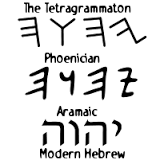“If we suffer with Him we will also reign with Him” 2 Tim 2:12
“For I consider that the sufferings of this present time are not worthy to be compared with the glory that is to be revealed to us. 19For the anxious longing of the creation waits eagerly for the revealing of the sons of God.” Roman 8:18,19
For it was fitting for Him, for whom are all things, and through whom are all things, in bringing many sons to glory, to perfect the author of their salvation through sufferings. Hebrews 2:10
For by grace you have been saved through faith; and that not of yourselves, it is the gift of God; 9not as a result of works, so that no one may boast. 10For we are His workmanship, created in Christ Jesus for good works, which God prepared beforehand so that we would walk in them. Eph 2:7
He chose to give us birth through the word of truth, that we would be a kind of firstfruits of His creation.… James 1:18
I think the idea that we were all saved just to “go to heaven” is nearly as destructive to the gospel as the idea of eternal torment. Understanding why God has done all these things and what He is creating seems to me to be “obviously fundamental” to understanding His wisdom, His truth.
Take the “whys” out of wise and what do you have?
All things will be gathered into one in Christ, for what? What when it is done? So we can sit aroun in a Christian Nirvana and suck our thumbs and stare at an image of God as we sing praise songs?
Forgive my sarcasm 
We speak a wisdom among the mature that the rulers of this world do not know- otherwise they would not have crucified Jesus. They disarmed themselves through the foolishness of their wisdom, being darkened in their understanding, blinded by their lust and greed and desire for authority.
Picture…
Little children drawing lines on the ground of the earth, the moon the sun and the stars, as opposed to a hologram of an ever expanding universe, as opposed to soaring in the Spirit through that ever expanding universe.
Draw it on the ground and say, “This is what it looks like, agree or get out!”
To a certain extent, to me, it is about starting and ending points. What are we missing as we stare at our drawing on the ground rather than looking to the sky and yearning to fly?
To what end has God done all these things? Certainly not so that we can define Him. He defined Himself in Jesus, the one who came in mysteries and parables.
“That which is born of the flesh is flesh, and that which is born of the Spirit is spirit. 7“Do not be amazed that I said to you, ‘You must be born again.’ “The wind blows where it wishes and you hear the sound of it, but do not know where it comes from and where it is going; so is everyone who is born of the Spirit.”
Nicodemus said to Him, “How can these things be?”
Everyone who believes that Jesus is the Christ is born of God, and everyone who loves the Father also loves the one born of Him. 1 John 5:1
“THE WORD IS NEAR YOU, IN YOUR MOUTH AND IN YOUR HEART”—that is, the word of faith which we are preaching, that if you confess with your mouth Jesus as Lord, and believe in your heart that God raised Him from the dead, you will be saved; for with the heart a person believes, resulting in righteousness, and with the mouth he confesses, resulting in salvation. For the Scripture says, “WHOEVER BELIEVES IN HIM WILL NOT BE DISAPPOINTED.” Romans 10:8-11
“If you confess with your mouth Jesus is part of the Trinity and believe in your heart that the Father, the Son and the Holy Spirit are three; co-equal, co-eternal and one in essence, existing as one God in three persons- you can be in the church and go to heaven.” Lamechiah 10:4
Or be excluded from Christ for believing otherwise. Or be burned at the stake for teaching otherwise. And be tormented forever in either case. 
A rather disappointing gospel imo. I prefer to believe we will be priests and sons of God restoring souls, celebrating life and creating portals through an ever expanding universe \o/




